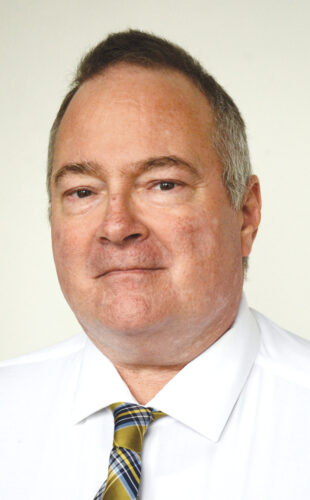What has happened to the value of human life?
Every great movie has a quote that sticks with you long after the lights come back up and you walk out of the theater.
In Clint Eastwood’s 1992 western “Unforgiven,” that line is delivered by the acting and directing legend himself, as retired gunfighter Will Munny.
The character’s remark to The Schofield Kid shortly after the young man’s first “kill” has always stayed with me.
“It don’t seem real … how he ain’t gonna never breathe again, ever … how he’s dead. And the other one too. All on account of pulling a trigger,” the kid reflected, almost with a twinge of regret, as if taking a life had affected him in a way he hadn’t expected.
That’s when Munny delivered, in my humble opinion, the film’s “money” quote.
“It’s a hell of a thing, killing a man. Take away all he’s got and all he’s ever gonna have.”
Munny spoke like a man who had grown old and tired of the violent life he’d led. But Eastwood’s character, while also reflective and perhaps even remorseful, wasn’t quite done killing.
But that was just a movie. Today, 33 years later, modern gunslingers are applying permanent solutions to temporary problems on a daily basis in America.
Instead of riding horses into and out of dusty western towns, today’s killers operate on the paved streets of modern American cities such as New York, Chicago, Los Angeles, Baltimore and Cleveland. They’re in smaller towns, too, like Warren and Youngstown. You can read about gun crime in the pages of this very newspaper on almost a daily basis.
One senseless murder after another. Sometimes, this epidemic of gun violence is about drugs. Sometimes it’s about disrespect in the streets or in a bar. Sometimes it’s about love and sex. Sometimes it’s entirely random.
You know what it always is? Stupid, tragic and completely unnecessary.
It’s disappointing that despite the myriad ways that human beings have advanced in all the centuries we’ve been here, one of the things that we still do better than almost anything is kill each other.
Last weekend, there were three shootings in Warren, including one in which a dispute quickly turned deadly in the parking lot of the Convenient Food Mart at the intersection of Elm Road and Larchmont Avenue on the city’s northeast side.
David Lee Owens III, 31, was shot several times in the chest and died at the scene.
Someone took away all he had and all he’ll ever have. They took him away from family and friends who will never hear his voice or feel his embrace again. Not only was a man’s life cut short, but countless lives will never be the same again because someone reacted to a situation by reaching for a weapon and turning it on fellow human beings.
People always talk about how tragic and unacceptable gun violence is, but it never really stops. Warren officials are making noise about forcing that Convenient Food Mart to close, but will that mean that gun homicides and other violence will stop?
That’s unlikely, because the problem is deeper and more sinister than one store that seems to be a flashpoint for late-night activity. There are distinct family and socioeconomic issues that won’t be solved by changing a store’s hours or shutting it down. Cities like Warren and Youngstown have closed so-called “nuisance” bars and stores in the past, but violence and other crimes always seem to simply migrate elsewhere or happen in residential areas.
Why do people live — and sometimes die — by the gun? I don’t know the answer. Some people are truly sociopaths. We’ve had more of these people in our midst than we’d like to admit — killers like Danny Lee Hill and Kenneth Biros among others — but while they were monsters, it does seem that a lack of respect for human life has really seeped into American culture over the years.
We’ve always seen it from the truly disturbed — Hill, Biros, Jeffrey Dahmer, Anthony Sowell and others — but so many kids and young men get involved with drugs. They rob, steal and sometimes kill as part of life on the street. Killing, it seems, or the potential of being killed, seems to be considered simply the cost of doing business. It’s the same with being caught and spending the balance of life in prison.
How does one lose all hope and arrive at a point in life when those seem like the best options? If some people do not value even their own lives, why would they stop and consider what they’re doing before taking the lives of others?
It seems impossible to reverse the brutal nihilism of the streets when so many have wholly devoted themselves to it.
Ed Puskas is editor of the Tribune Chronicle and The Vindicator. Reach him or epuskas@tribtoday.com or by calling 330-841-1786. 
